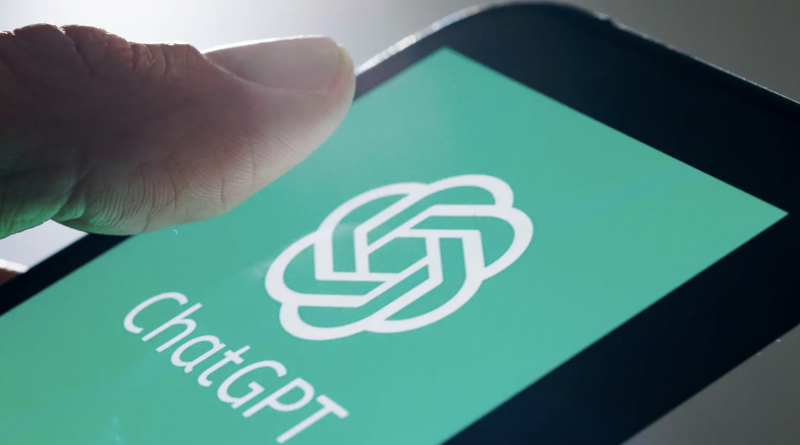ChatGPT app revenue continues to climb, though some rival AI apps surpass it.
ChatGPT, the AI-driven chatbot developed by OpenAI, stands out as a leader among mobile AI chatbot applications, both in terms of downloads and revenue. Nevertheless, it doesn’t claim the top spot in revenue within the AI app category. Surprisingly, various AI photo applications and other AI chatbots are surpassing ChatGPT in earnings, despite ChatGPT’s widespread recognition as a premier AI chat experience.
Since its introduction on mobile devices in May of this year, ChatGPT has consistently seen growth in downloads and revenue. In its inaugural month, exclusively available on iOS, it achieved over 3.9 million downloads. By June, this figure had surged to 15.1 million, based on data from Apptopia’s analysis of the AI app market. After a minor decline in July, ChatGPT’s downloads rebounded to reach over 23 million by September 2023.
Furthermore, ChatGPT’s usage on mobile devices has witnessed substantial expansion, growing from slightly over 1.34 million monthly active users in May to an impressive 38.88 million as of September.
Notably, ChatGPT’s mobile application has outperformed many competitors in terms of consumer spending. It started at $352,929 in the month of its launch and climbed to $1.98 million in September, nearing $2.39 million as of October 24, which marks the end of the current data set.
Nonetheless, ChatGPT does not lead the AI chatbot revenue race. “Chat & Ask AI” and “ChatOn — AI Chat Bot Assistant” both outperformed ChatGPT in September, earning nearly $3.38 million and $2.11 million, respectively. Other apps, such as “AI Chatbot — Nova” and “AI Chatbot: AI Chat Smith,” brought in around $1.44 million and $1.72 million in September, respectively.
As ChatGPT faces competition for user attention on mobile devices, at least five AI chatbot apps reached over 2 million downloads in September. These apps, including “Chat & Ask AI,” “ChatOn — AI Chat Bot Assistant,” “AI Chatbot — Nova,” and “AI Chatbot: AI Chat Smith,” have 2.44 million, 2.02 million, 3.1 million, and 2.9 million downloads, respectively. They seem to leverage effective App Store SEO strategies, ranking well for terms users typically search for, such as “AI Chat.” Although these numbers still fall short of ChatGPT’s 23 million downloads, they highlight a broader market for AI apps beyond OpenAI’s creation.
Additionally, Character.ai, a chatbot startup backed by a16z, is in the running with 2.39 million downloads as of September.
Moreover, many AI chatbot apps maintain an active user base. For instance, Poe, the chatbot app associated with the Q&A platform Quora, had over 1.18 million monthly active users in September, compared to ChatGPT’s nearly 39 million.
These generic apps have managed to cultivate a dedicated following, not just through downloads but also by retaining their users. “Chat & Ask AI” boasted 9.7 million monthly active users in September, “ChatOn — AI Chat Bot Assistant” had 3.5 million, followed by “Genie — AI Chatbot AI Assistant” (2.3 million), “AI Chat — Chatbot AI Assistant” (2.17 million), “AI Chatbot — Nova” (8.55 million), and “AI Chatbot: AI Chat Smith” (8.48 million). Character.ai also amassed 5.92 million monthly active users in the same month.
In contrast, AI photo applications that employ AI technology for photo editing and personalization have gained prominence in a slightly different space.
Although these apps operate in an adjacent space to ChatGPT, some of them have rivaled the AI assistant in terms of metrics like downloads, usage, and in-app purchase revenue. Despite ChatGPT’s 23 million downloads in September, apps like “Remini” came close, with over 16.17 million downloads last month, thanks to its AI headshots feature going viral on TikTok. “PicsArt AI Photo Editor” also performed well in September with nearly 16.05 million installations.
“Remini” additionally secured 6.2 million monthly users last month, while “FaceApp,” which includes AI filters, boasted more than 6.4 million users. Other apps like “PicsArt” (4.27 million MAUs), “Wonder — AI Art Generator” (4.77 million MAUs), and “Facetune AI Photo/Video Editor” (5.22 million MAUs) also exhibited high usage.
Several AI photo apps have managed to generate more revenue through in-app purchases compared to ChatGPT. Various factors may contribute to this, including the fact that ChatGPT sells its premium ChatGPT Plus subscription via the web, whereas AI photo apps primarily generate revenue through users’ smartphones as they interact with the photos stored on their devices. Furthermore, many apps achieve viral status, leading to a burst of fame that can translate into ongoing usage or subscriptions as users explore their additional features.
While ChatGPT generated $1.98 million in mobile consumer spending as of September 2023, apps like “Remini,” “PicsArt,” “Wonder,” “BeautyPlus — AI Photo/Video Edit,” “FaceApp,” and “Facetune: AI Photo/Video Editor” earned more, with revenues of roughly $6.22 million, $4.27 million, $2.08 million, $4.78 million, $6.42 million, and $5.22 million, respectively.
However, the popularity of AI photo apps may be more short-lived than ChatGPT in some cases. For instance, Lensa, which went viral the previous year, recorded 23.44 million downloads in December 2002, but that number has dwindled to 413,814 monthly installations as of September 2023 and 739,000 monthly active users, down from nearly 24.9 million in December. Its mobile consumer spending also decreased to $739,000 last month from a high of over $24 million, according to Apptopia’s research. These figures suggest that users tend to shift between viral AI photo apps as new features are marketed and developed elsewhere.

